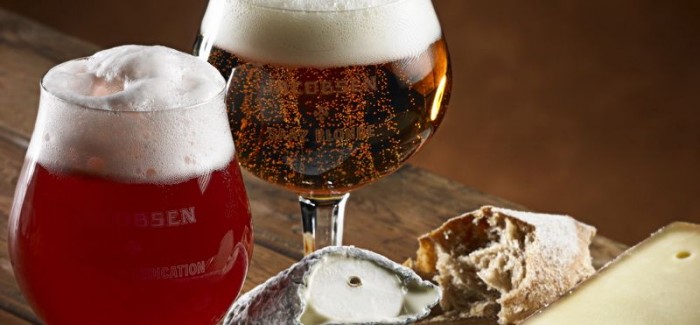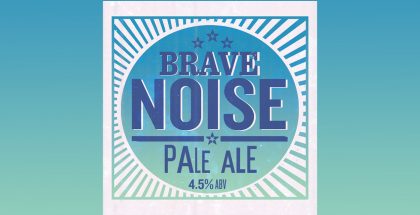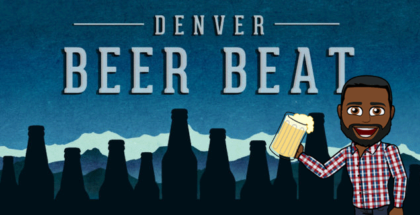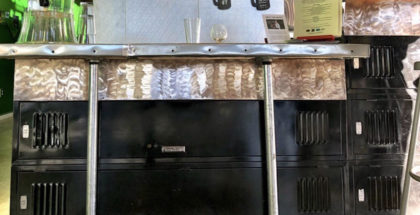Beer and Food | The Basics
Why Beer and Food… Why Not?
If you’ve ever asked yourself why you should pair a nice craft beer with your next meal, the question you should be asking yourself is why not? Beer is basically food itself having been given the nickname “liquid bread” and is well suited for pairing, with a variety of flavors and intensities to match almost any dish.
Beer is nothing to be intimidated by, as wine may be for some, being much more user friendly. Enthusiasts including myself will even refer to pairing beer with food as requiring a shotgun approach, being fairly easy to hit your mark, whereas pairing wine takes a rifle approach, you require a bit more skill and precision to attain that perfect harmony.
Before we begin to discuss the elements of pairings, and what you should expect to see in the future from Alewise, let’s cover the three basic principles of pairing. First, look for complimentary flavors in your beer and food, citrusy hop flavor with a seafood ceviche. Second, find elements that will contrast eachother well in the two, like how the effervesence of a berliner weisse can cut through the richness of a dish. Third, you want to match the intensity of the beer with the dish so that you aren’t drinking a light pilsner with a rich chocolate cake. As long as you follow these principles in pairing you should begin to find yourself discovering how beer and food can form a symbiotic relationship and create wonderful flavor experiences for you. Before we set sails into the open seas just remember, pairing beer and food should be fun, so you should always eat and drink what YOU like.
As already mentioned, beer has an array of flavors and intensities that are also present in food. Every ingredient in your beer will contribute to the flavor and intensity, even the minerals in your water. Malt, the base of the beer, contributes flavors including honey, caramel, nutty, toasted and roasted. The introduction of the hops brings notes of pine, herbs, citrus, and spice. Finally, the addition of the yeast will not only accentuate many of these flavors, but bring a host of its own flavors to the equation, spice/pepper, earth, fruit, and honey. Working with beer will provide a wide range of flavors, and because every persons palate is different, you will experience a number of other flavors than we listed here.
There are also factors contributing to mouthfeel in beer which can aid in improving the quality of your pairing, bitterness, acidity, tannins, carbonation, and alcohol. If you’re in a bind you can always remember a couple tricks, “What grows together goes together” classic cuisine and beer from the same region is often a safe bet. The other, “when in doubt, grab a Belgian” Belgian beers will generally have enough substance not to be overpowered by most dishes, while having a not too aggressive malt/hop profile to swing the scales in the wrong direction either.
Now that we have discussed the basics and why beer is such a great paring companion with food, let’s move onto the different types of dishes. Think about the progression of a meal, generally the intensity of the dishes will increase as the meal goes along, so should your beer.
We will be looking to showcase a progressive meal of an appetizer, salad, entree, and dessert each month with pairings. Appetizers and the beers that go with them, should excite your palate without wearing it out, so beers that are lighter bodied and not too bitter are better here.
Consider with a salad if you will have any protiens or cooked ingredients, and the base of the dressing, a vinaigrette vs. cream based dressing will certainly make a difference. With entrees you want to take into account the main ingredient, the cooking method used to cook it, and what sauces or seasonings will be used, an Oscar-style Filet Mignon will host a multitude of different flavors than a Chicken Marsala. For dessert nothing small, dessert is a BIG course and demands a BIG beer which can be defined as high levels of alcohol, hops, residual sugar, or acidity. Dark chocolate LOVES Dark beer, the beer will showcase a delightful bitterness of the dark chocolate while the chocolate brings out a creamy sweetness in the beer.
You beer and food enthusiasts out there may have noticed we forgot to mention cheese. We didn’t forget, in fact quite the contrary. There will be a featured beer and cheese pairing each week, as cheese is such a perfect partner with beer, it deserves its own special attention. Garrett Oliver has even been quoted as saying, “Cheese is grass, processed by a cow, modified by microbes, beer is also grass modified by a microbe – yeast”.
Beer pairs so wonderfully with cheese because it has the sugar to balance with the salt and fat in the cheese, and the alcohol and hop bitterness to cut right through them, not to mention the tongue scrubbing effect the carbonation gives you. The symbiosis between beer and cheese has even grown stronger recently as farmers have begun to work with brewers by hauling away spent grain as a way of supplanting their animals feed.
There are some important factors in the cheese you choose that will affect the success of your pairing. What type of milk was used to make the cheese, will you get a creamy, buttery flavor from cows milk, or the fresh, creamy tang of goats milk, or the rich nutty, grassy flavors of sheeps milk?
Next, texture, this is a sign of how much moisture is in the cheese and how small the curds were cut. Lastly, the ripening process used, an aged cow Parmesan will vary greatly from a Triple Cream, or Gorgonzola picante, or an Epoisses. As a way to help make this world more accessible we’re bringing in a local ASC Certified Cheese Expert, Molly Browne from Cured in Boulder to aid in the cheese pairing process. For those of you around the country we highly recommend seeking out a great local cheese shop/expert.
It wasn’t that long ago that it was hard to find food that wasn’t processed or pasteurized, and the beer scene wasn’t very different, but times have changed. This is an exciting time as we have seen passionate brewers and growers who have started offering artisanal products, which consumers have really started appreciating. The resulting mass influx of smaller batch, locally produced, organically grown products, has given us a bevy of options to choose from. It’s our turn as consumers to respond by learning about and understanding these ingredients and beverages. When properly paired they can become powerful tools that can help fully round out a meal.
Alewise is a Ciceone and Beer Education Co-op founded by Eric Linder and David Bird in Boulder, CO. Our goal is to strengthen the beer community by fueling the knowledge and passion of those involved or interested in joining it by making things more accessible and fun. You can find Eric serving or bartending at Frasca Food & Wine in Boulder, and David in the taproom at Avery Brewing Co. in Boulder. Or follow us on Facebook @ www.facebook.com/Alewise.beer.







Submit a Comment